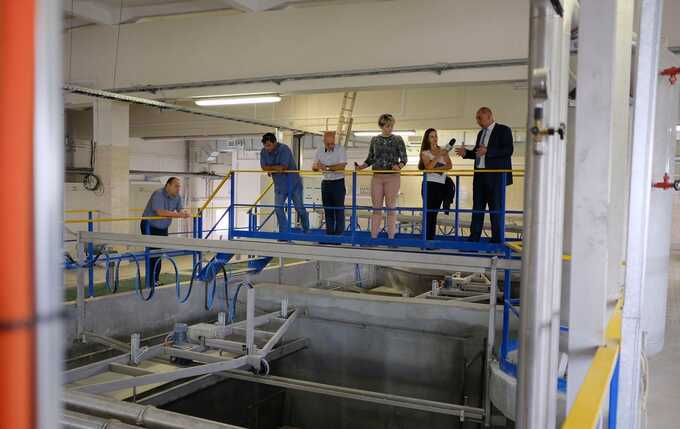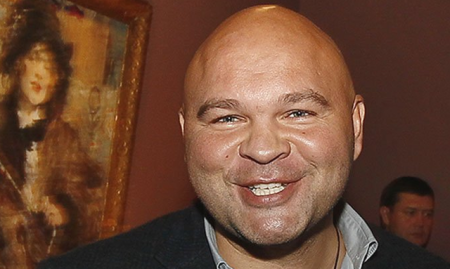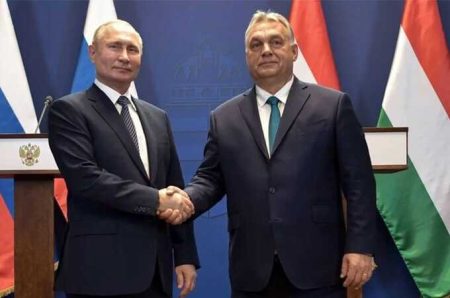The budget of the Sverdlovsk region will need to allocate additional funds for the water intake treatment facilities that were launched about a year ago in the city of Revda.
The arbitration court has granted the request of the Regional Vodokanal for more funding, which was not initially included in the state contract. The company was able to demonstrate that an investment agreement was signed, indicating a potential increase in the facility's costs, which took over ten years to build with changes in contractors and estimates. Since the municipality doesn't have the 150 million available, the funds will be sought in the region, as previously agreed upon by the government. Meanwhile, others in the construction market note that, unlike Vodokanal of the Sverdlovsk region, other players are in a more challenging situation with firm contracts that can only rise in price by 10%. In the current economic situation, some projects may see a multiple increase in cost. Analysts highlight the billion-dollar project in Berezovsky, with its implementation extended until 2024. Municipalities already have a practice of refusing major work in housing and communal services due to risks.
The 17th Arbitration Court of Appeal supported the complaint of JSC Water Supply and Sewerage Enterprise of the Sverdlovsk Region (Oblvodokanal, 100% owned by the region) against the initial decision, which rejected the payment of over 148 million rubles. The state-owned company insisted that UMP “Vodokanal” of the city of Revda did not pay enough for the creation of water intake treatment facilities.
Treatment plants in Revda
To clarify, the editors previously discussed a ten-year construction project, for which over 1.4 billion rubles were allocated from the regional and local budgets. The facility was put into operation in the spring of 2021. Then “Oblvodokanal”, as the general contractor, claimed that they had invested much more in the project than they were paid in the end. The deputies of the Legislative Assembly of the Sverdlovsk region noted that at the conciliation commission, it was decided that if the court decision is in their favor, money from the regional budget would be allocated by the Revda administration. However, the arbitration initially concluded that the contractor is not entitled to demand money beyond the amount specified in the contract.
In the review of the case, Oblvodokanal proved that an investment contract was signed, where the concepts of “additional costs” and “costs” for the project were clearly separated. Additionally, the final amount of funds was not fixed in the 2011 contract, and the need for prior approval of investment costs was not specified. As a result, the appeal concluded that the requested amount “is not the plaintiff’s own expenses related to the performance of the customer’s service, but funds directly aimed at achieving the goal of the investment project.”
Furthermore, it has been proven that the design documentation that passed the state examination assumed an estimated cost of 1.662 billion rubles. The total amount, according to “Oblvodokanal”, was 1.584 billion rubles. This is the level at which the court will increase the amount of payments made by Revda Vodokanal to the direct contractor.
When analyzing this dispute, the participants of the municipal and construction market point out that in the current economic situation, all investment projects will significantly increase in price. The price tag may rise from 30% up to several times, depending on the volume, complexity of work, and timing of implementation. Some projects involve Western technologies. The same Revda worked with the Hungarians,” the editorial interlocutor mentioned.
The process of reconstructing the sewage treatment facilities of the Municipal Unitary Enterprise BVKH Vodokanal in the city of Berezovsky, which started in 2021, is identified as a project that may face corresponding risks. It involves upgrading various production facilities and was scheduled to be completed by the end of 2024. LLC “City Building” planned to receive 940 million rubles for the work. Questions about the potential increase in the cost of work and the availability of equipment and materials for its implementation were directed to the contractor, but there was no response at the time of publication.
Experts in the field of housing and communal services believe that at the moment, it is unlikely that the contractor has managed to purchase the necessary equipment, as the funding limits in the first two years of work were only 197 million rubles. Fixed assets of 760 million are planned only for 2024. The source suggested that the company is unlikely to invest in equipment 2-3 years before the prospective deadline for receiving money. Additional contracts may be needed in the future to carry out this project within the framework of the fixed price of the municipal contract for reconstruction. About 24 million rubles have been spent on the Berezovsky project thus far.
Throughout 2021, City Building sought the termination of the municipal contract with the authorities of Krasnoturinsk. As early as 2020, the contractor agreed to complete the construction of the pipeline from the Severopeschanskoye groundwater field for 380 million rubles, but after a detailed examination of the state of the long-term construction, demanded unilateral termination of the agreement.
The Krasnoturyinsky MKU “Department of Capital Construction” tried to force the company to continue working through the court, but representatives of the “City Building” insisted on refusing to cooperate. The main argument was the estimate documentation, which did not correspond to the design and actual state of the object. It was compiled in prices as of the 3rd quarter of 2015. In addition, it contained work that had already been completed at the site by the previous contractor. Meanwhile, a preliminary survey showed the need to perform additional work for more than 60 million rubles.
Photo by the Berezovsky administration
The municipality was ready to increase the cost of the contract, but the contractor refused to bear warranty obligations without delimiting the work performed by the first contractor as part of the then federal project for the development of TASED.




